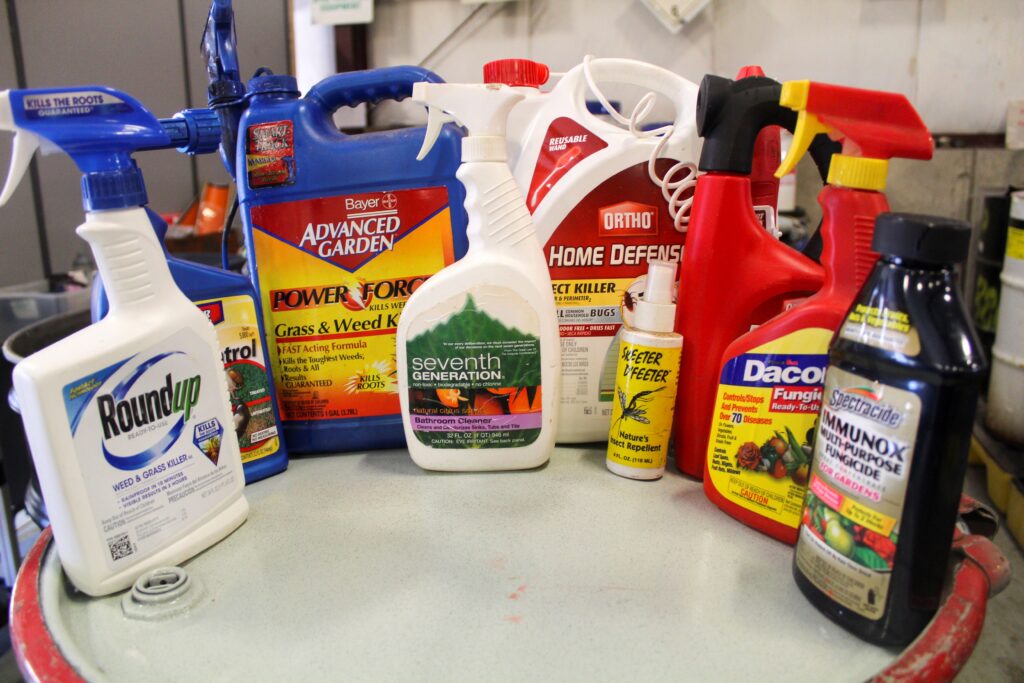It will come as no surprise that many of the common herbicides and pesticides used in gardening are toxic – after all, their main purpose is to kill and control common garden weeds and pests. However, this also means that special safety measures must be taken both during the use of these agents and while disposing of them. Many of these products cannot be thrown away in the trash, meaning you need to know how to handle the safe disposal of herbicides and pesticides.
Reading the Labels of Toxic Gardening Products
If you have questions about the herbicides, pesticides, and other gardening chemicals you have at home, the best place to start is by reading the label. These can often give you insight into what chemicals they contain and suggested safety measures, including use, storage, and disposal. Find information for your specific product and state by using the National Pesticide Information Network.
Dealing with Common Handling and Storage Issues
Like with many common household hazardous products, your work starts when buying products and only ends after proper disposal. For everything in the middle:
- Use Proper Safety Gear: You should always wear gloves when handling gardening chemicals. For spray or powder application, use a mask if using the products extensively.
- Avoid Overuse: Especially with lawn chemicals, using in larger doses can cause excess chemicals to join runoff from rain or sprinklers, endangering drinking water and the environment.
- Avoid Excess Amounts: Make sure to buy only what you’d need for up to two years, as most products start becoming unusable after that.
- Storage Best Practices: Store in original containers out of reach of children and pets. Avoid storing in damp places, especially with paper or metal containers.
- Banned or Restricted Status: Especially if you are using gifted or older herbicides or pesticides, make sure they are allowed for use in your area (here’s link for the MA Pesticide Program).
How to Dispose of Hazardous Gardening Chemicals
It’s important to understand that due to the nature of these gardening products, they generally can’t be thrown in the trash or dumped down the drain due to their effects on the ecosystem and wildlife. If you have empty containers, they need to be cleaned before being thrown away. Triple-rinse with cold water, not pouring the used water down the drain. The washed container should be wrapped in newspaper before being disposed of in the trash. Note that even after being emptied and cleaned, do not recycle or reuse these containers.
Old or empty pesticide and herbicide containers are a common household hazardous product and can be disposed of at the appropriate community events and facilities. If one of these isn’t available to you, visit one of our NEDT Household Hazardous Products Collection Centers! We make it easy to dispose of common household hazardous waste. Contact us if you’d like to use our pick up service or find the closest location and time for you.



Leave a Reply